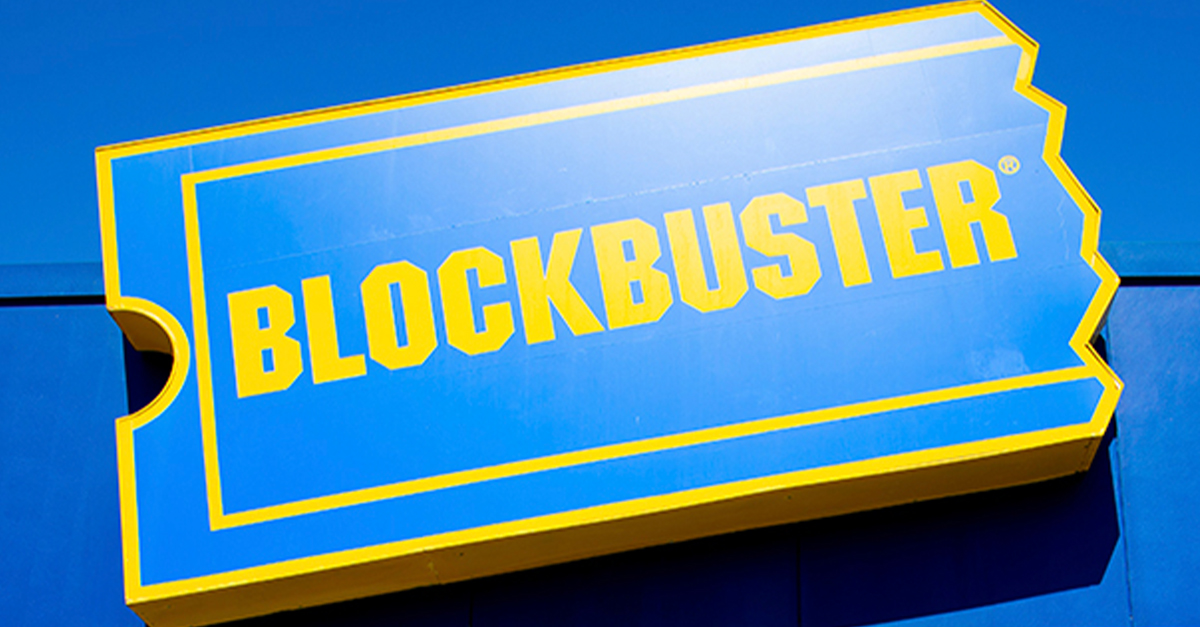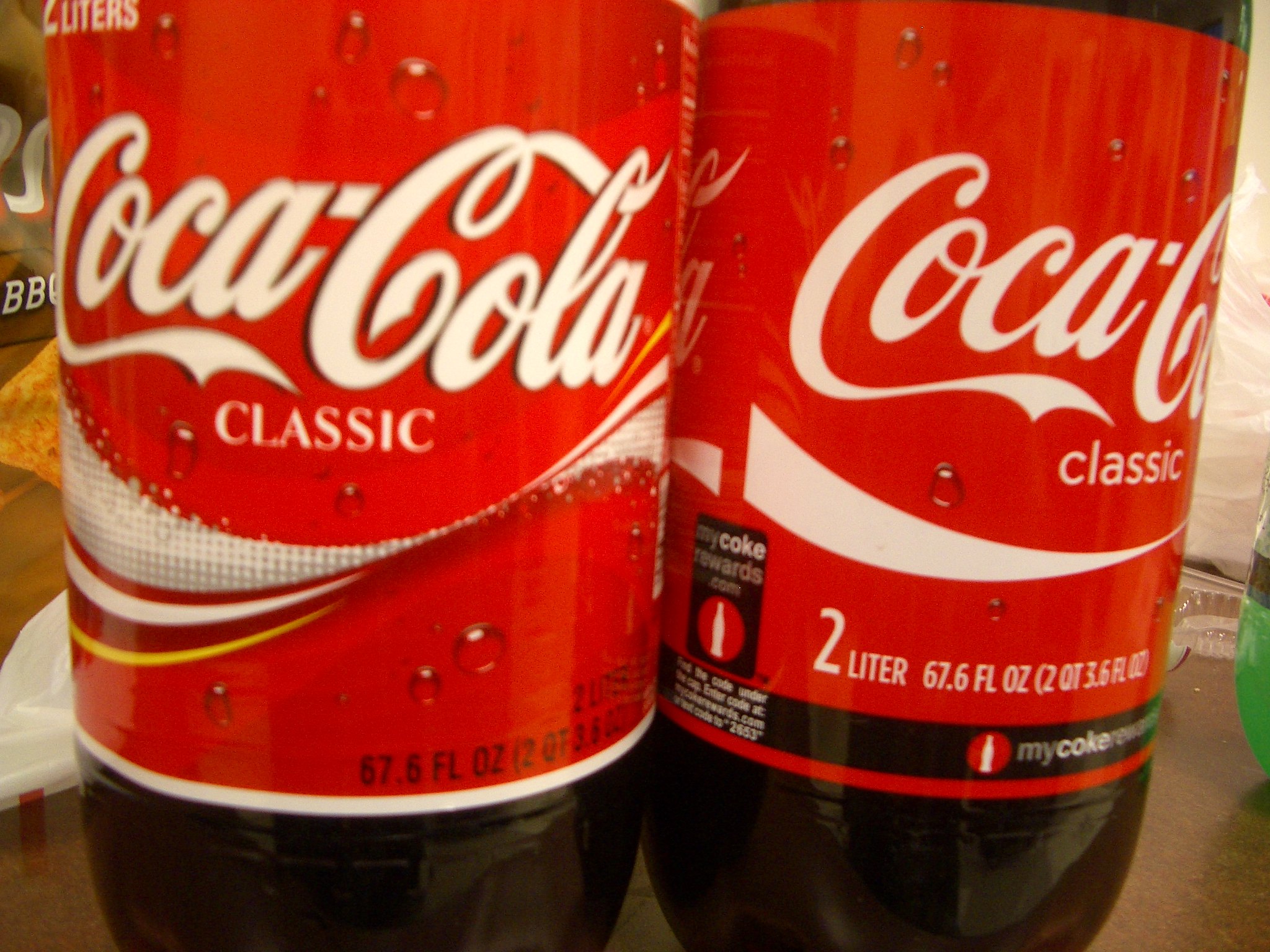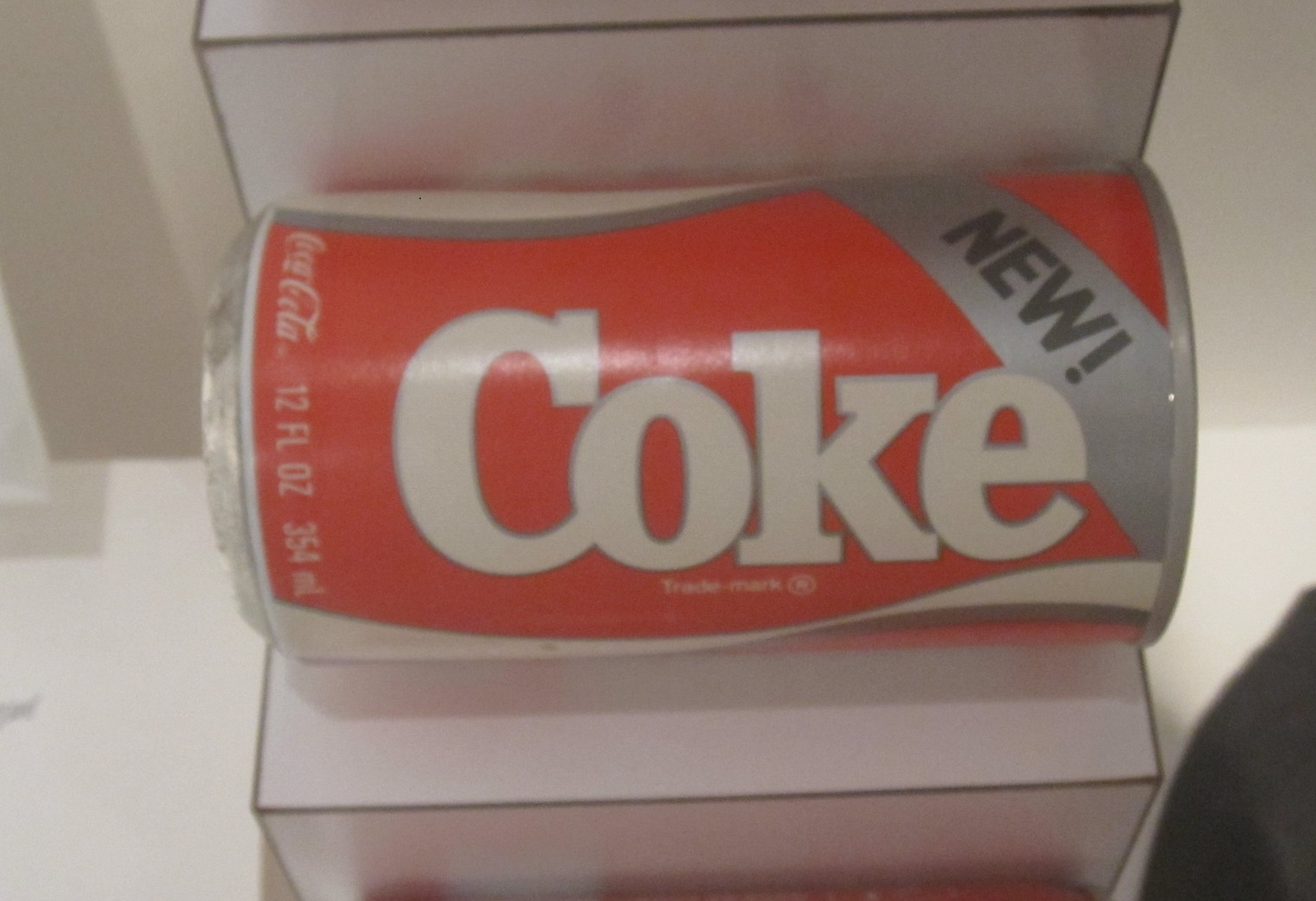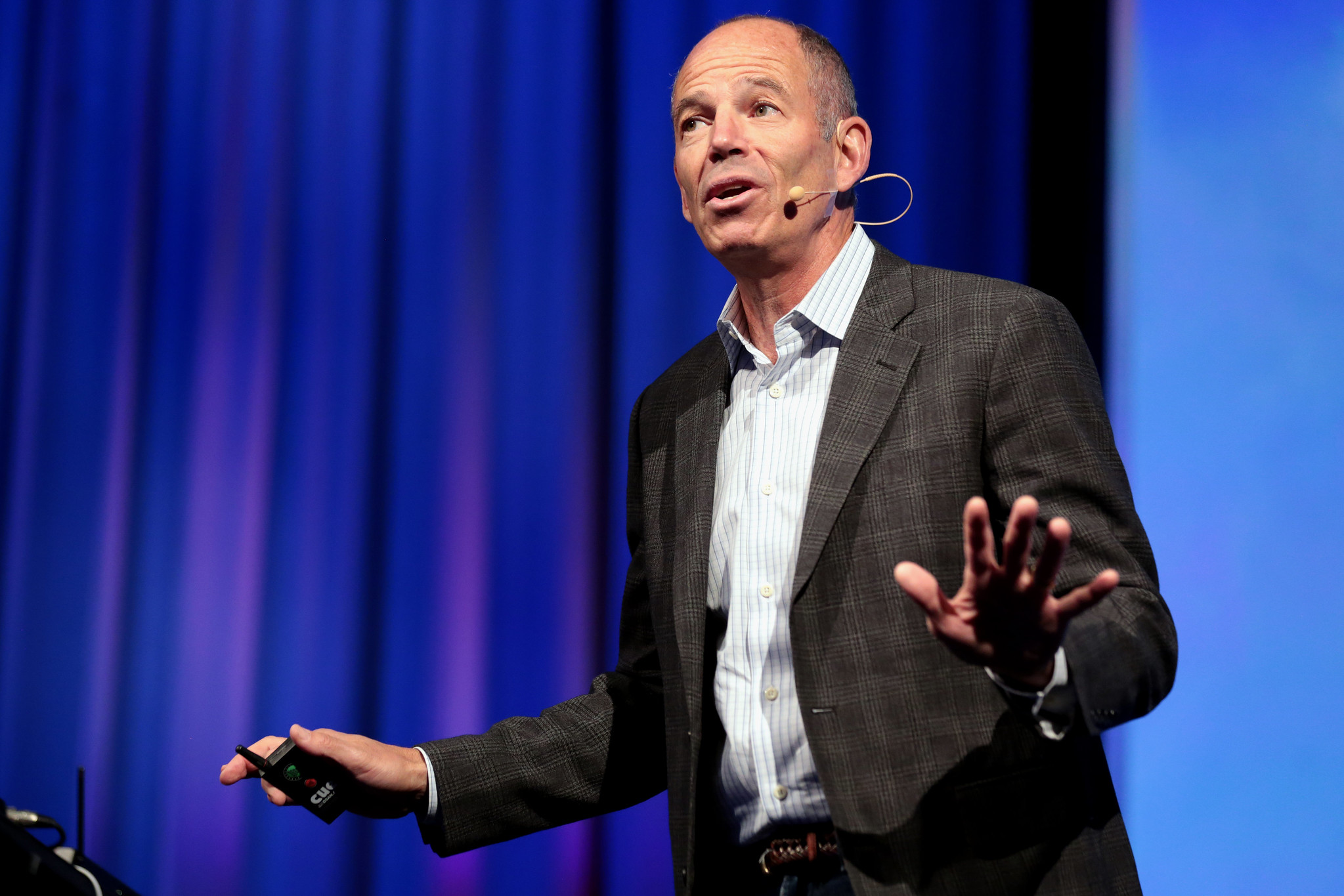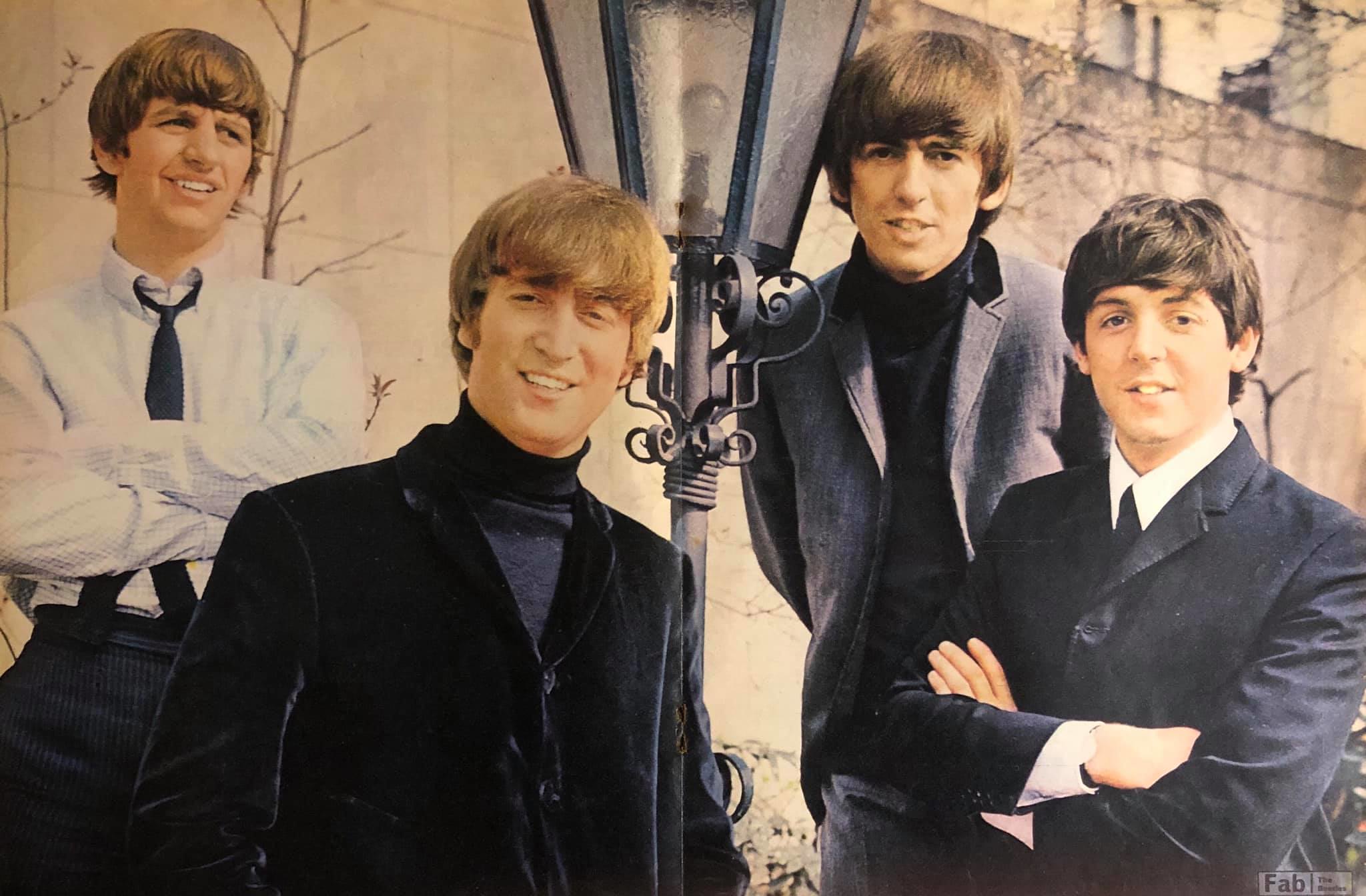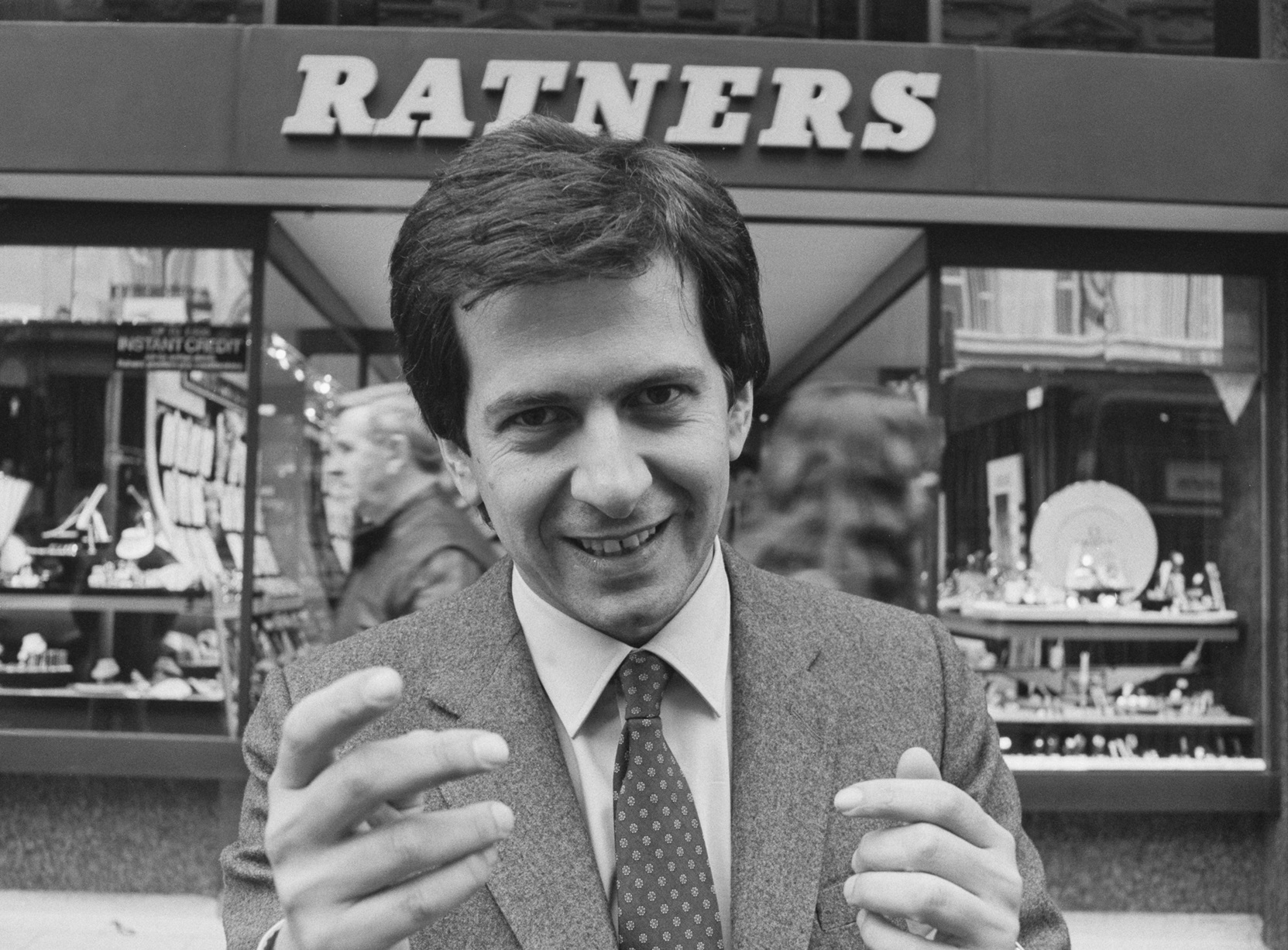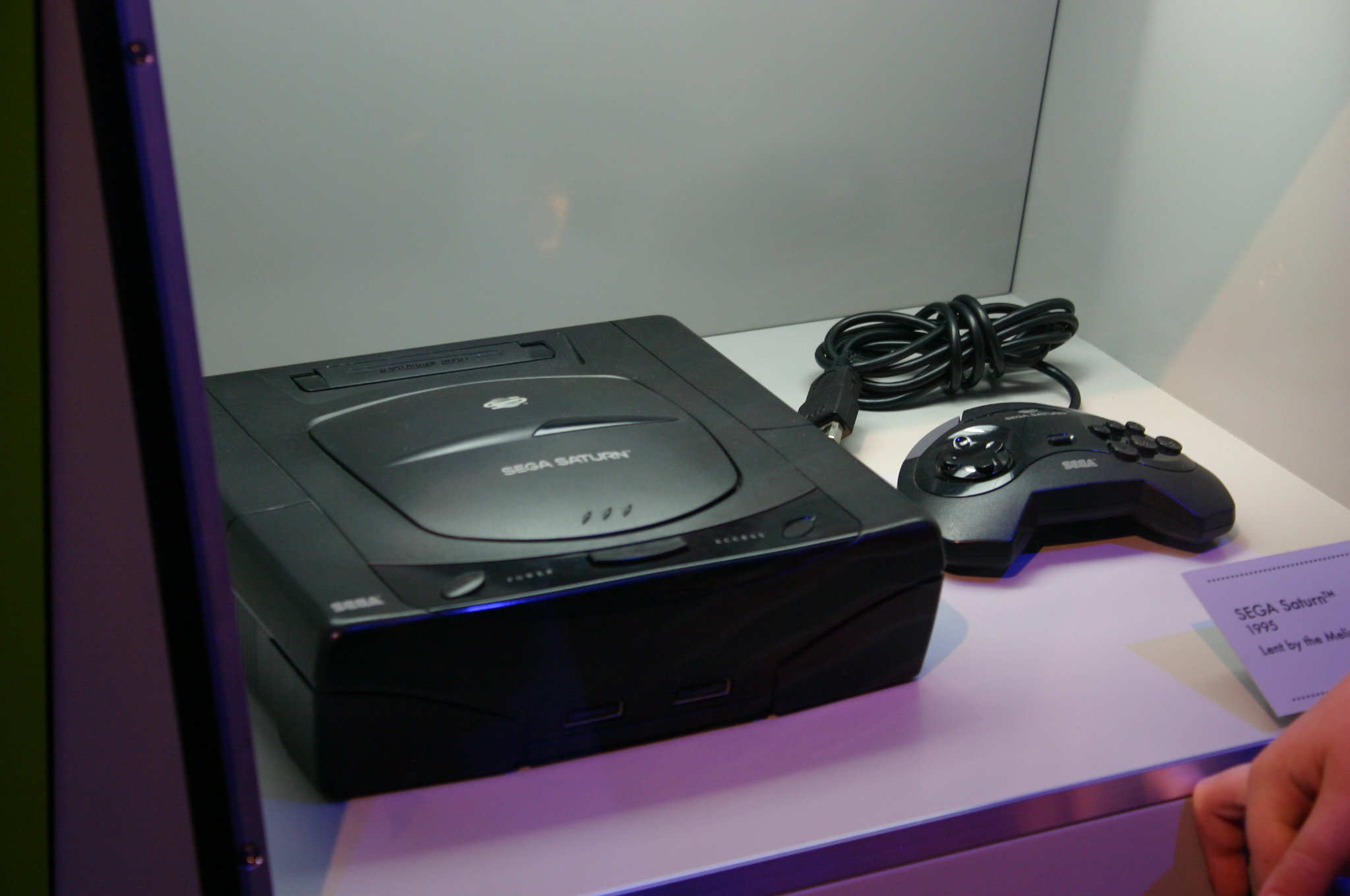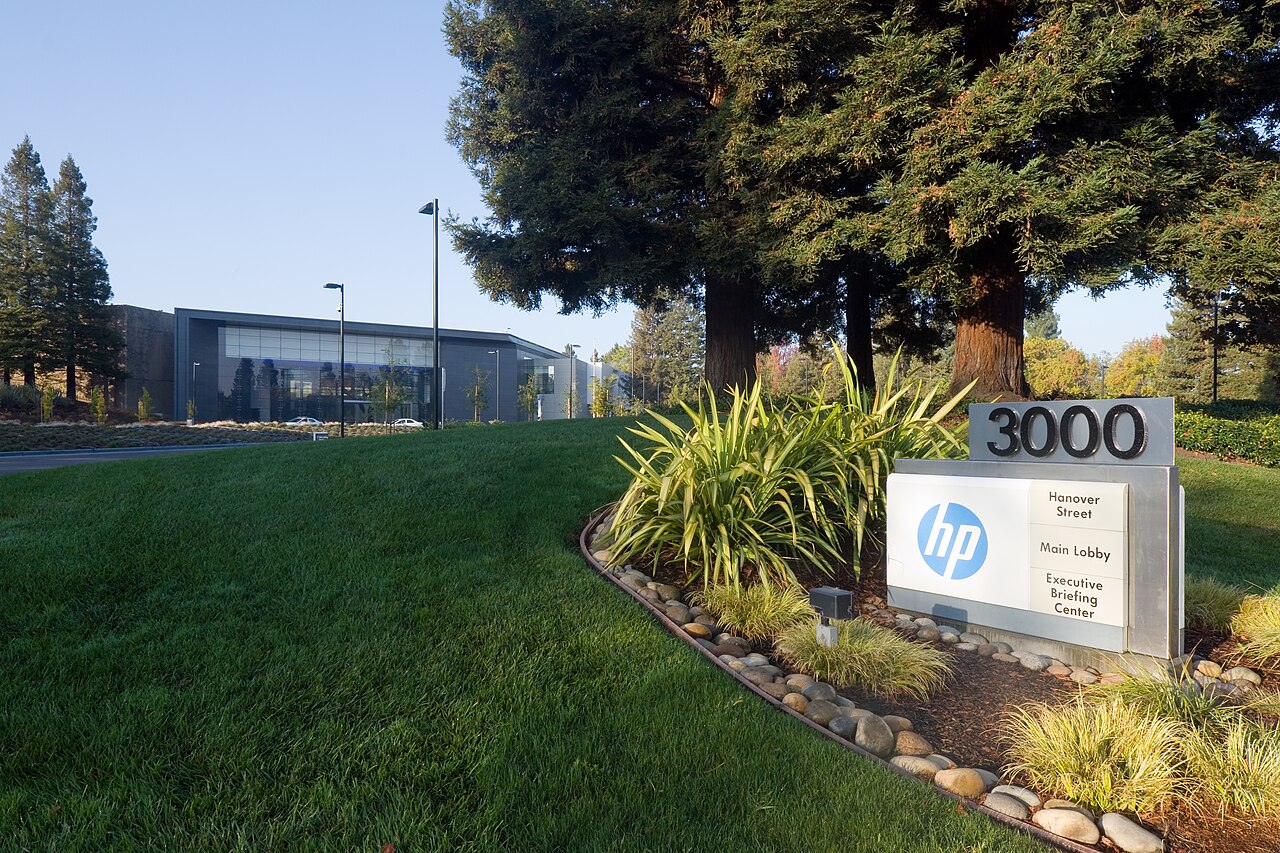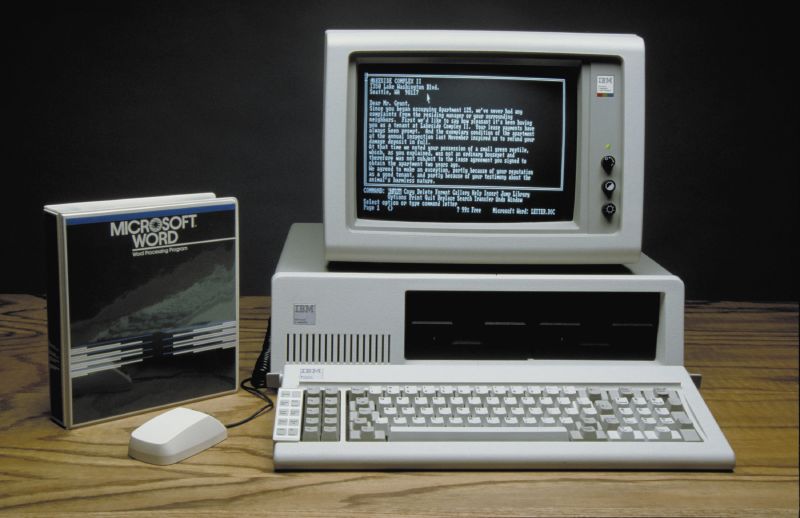Mistakes Were Made
When it comes to running a business, it can be difficult to know if you're making the right moves—especially with so much at stake. Well, unfortunately for these companies, they made some of the worst business decisions in history.
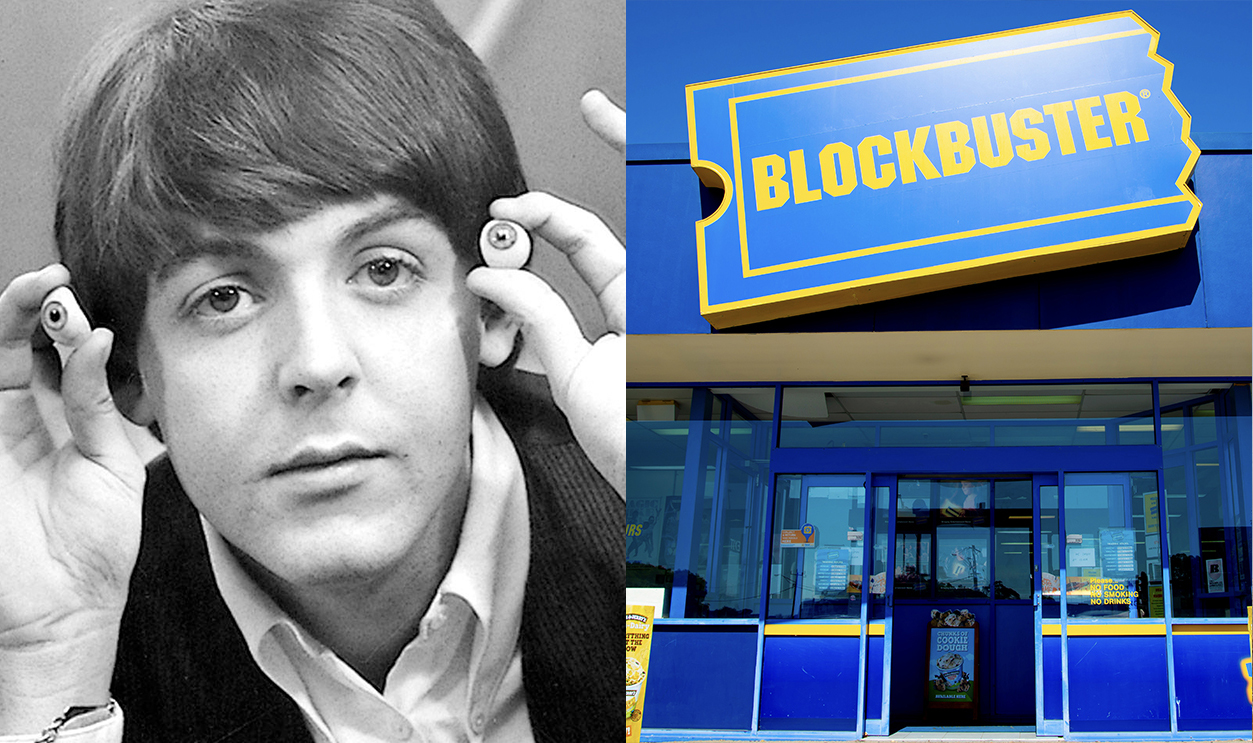
New Coke
Coca-Cola made a stunning decision in 1985. They decided to change the one thing that defined their product: Its recipe. It didn't matter that Coca-Cola already had a tried and true formula, they still wanted to do something to rival Pepsi. This turned out to be a major mistake.
New Coke
Turns out, Coca-Cola fans didn't want New Coke, because they already loved the old Coke. It didn't take long for the company to backtrack on their decision, as just 79 days after New Coke came out, they put out "Coca-Cola Cassic" (the original formula).
New Coke
Five years after its underwhelming release, the company renamed New Coke. It became Coke II—but by 2002, Coca-Cola discontinued it.
When Blockbuster Turned Down Netflix
These days, I'm still nostalgic for the good ol' days of Blockbuster, browsing the newest releases on a Friday night. However, the company fumbled big time in the early 2000s.
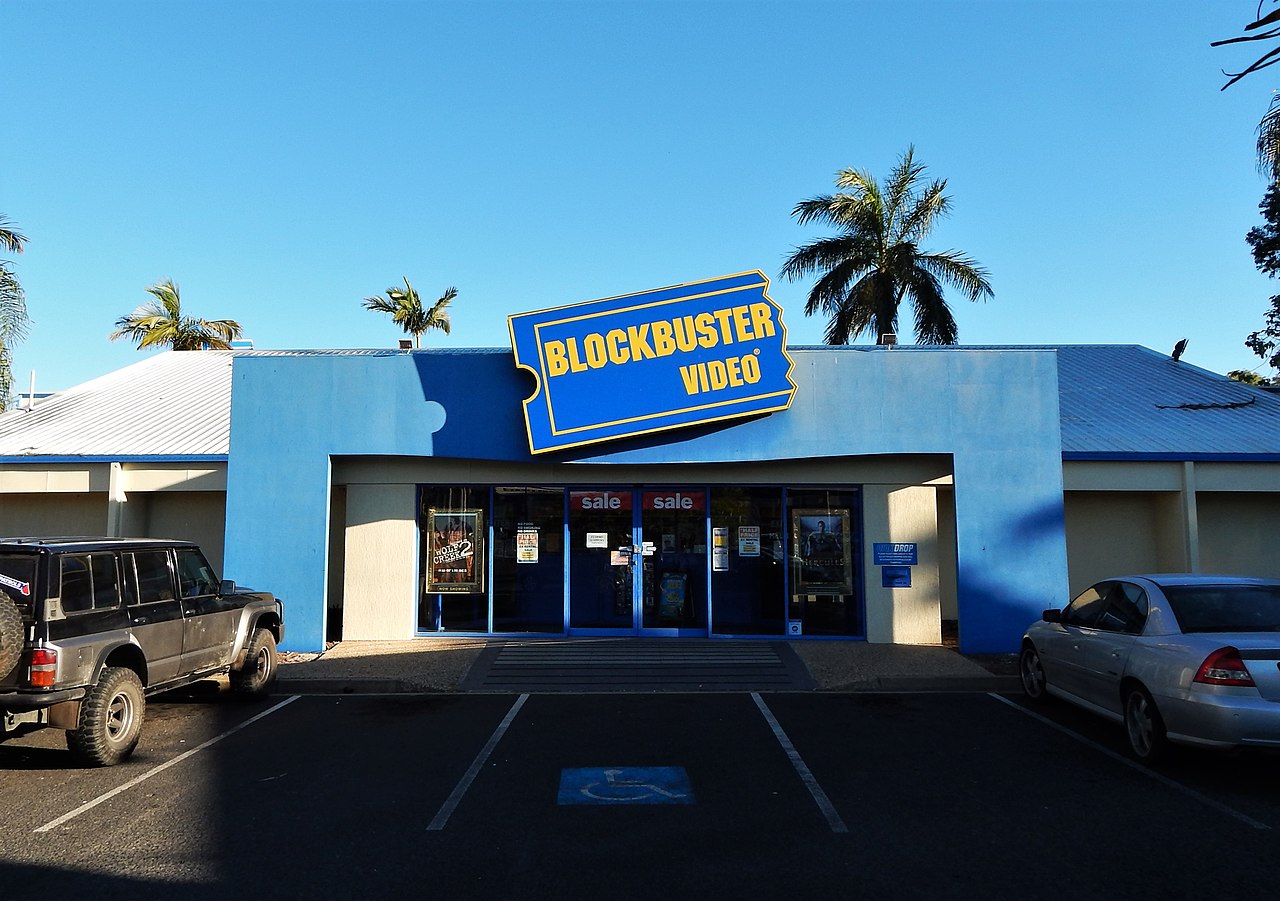 RegionalQueenslander, CC BY-SA 4.0, Wikimedia Commons
RegionalQueenslander, CC BY-SA 4.0, Wikimedia Commons
When Blockbuster Turned Down Netflix
Enter: Netflix. At the time, Netflix was still in its infancy. The company approached Blockbuster with an interesting proposal. The co-founders of Netflix, Marc Randolph and Reed Hastings, wanted to sell their company for $50 million. However, Blockbuster's response was diabolical.
When Blockbuster Turned Down Netflix
Blockbuster executives didn't think that an online presence for their business was important enough to shell out millions for. They rejected Netflix, and Marc Randolph later shared that Blockbuster "laughed us out of the room."
Well, hindsight really is 20/20.
When Blockbuster Turned Down Netflix
As we all know by now, Netflix went on to become a major streaming success, while Blockbuster went out of business.
Randolph later wrote, “I think the more important lesson—a lesson that Blockbuster learned too late—is simply this: ‘If you are unwilling to disrupt yourself, there will always be someone willing to disrupt your business for you.’”
Kodak Turned Its Back On Digital Photography
Kodak was one of the most successful photography companies, but their refusal to embrace digital photography became their greatest downfall.
Kodak Turned Its Back On Digital Photography
The most heart-wrenching part about Kodak's missed opportunities in the digital world is that they actually invented the technology.
 Strubbl, CC BY-SA 4.0, Wikimedia Commons
Strubbl, CC BY-SA 4.0, Wikimedia Commons
Kodak Turned Its Back On Digital Photography
In 1975, an engineer working at Kodak named Steve Sassoon invented the very first digital camera. This should have set Kodak up for success, however, the company's response to the genius invention was mind-boggling in retrospect.
Kodak Turned Its Back On Digital Photography
Sassoon later shared, "But it was filmless photography, so management’s reaction was, ‘that’s cute—but don’t tell anyone about it.’"
Safe to say, mistakes were made.
Kodak Turned Its Back On Digital Photography
Instead of seeing digital photography as a major opportunity, Kodak saw it as a threat to their product—film. They chose not to roll with the times and came to their senses too late. In 2012, the company filed for bankruptcy.
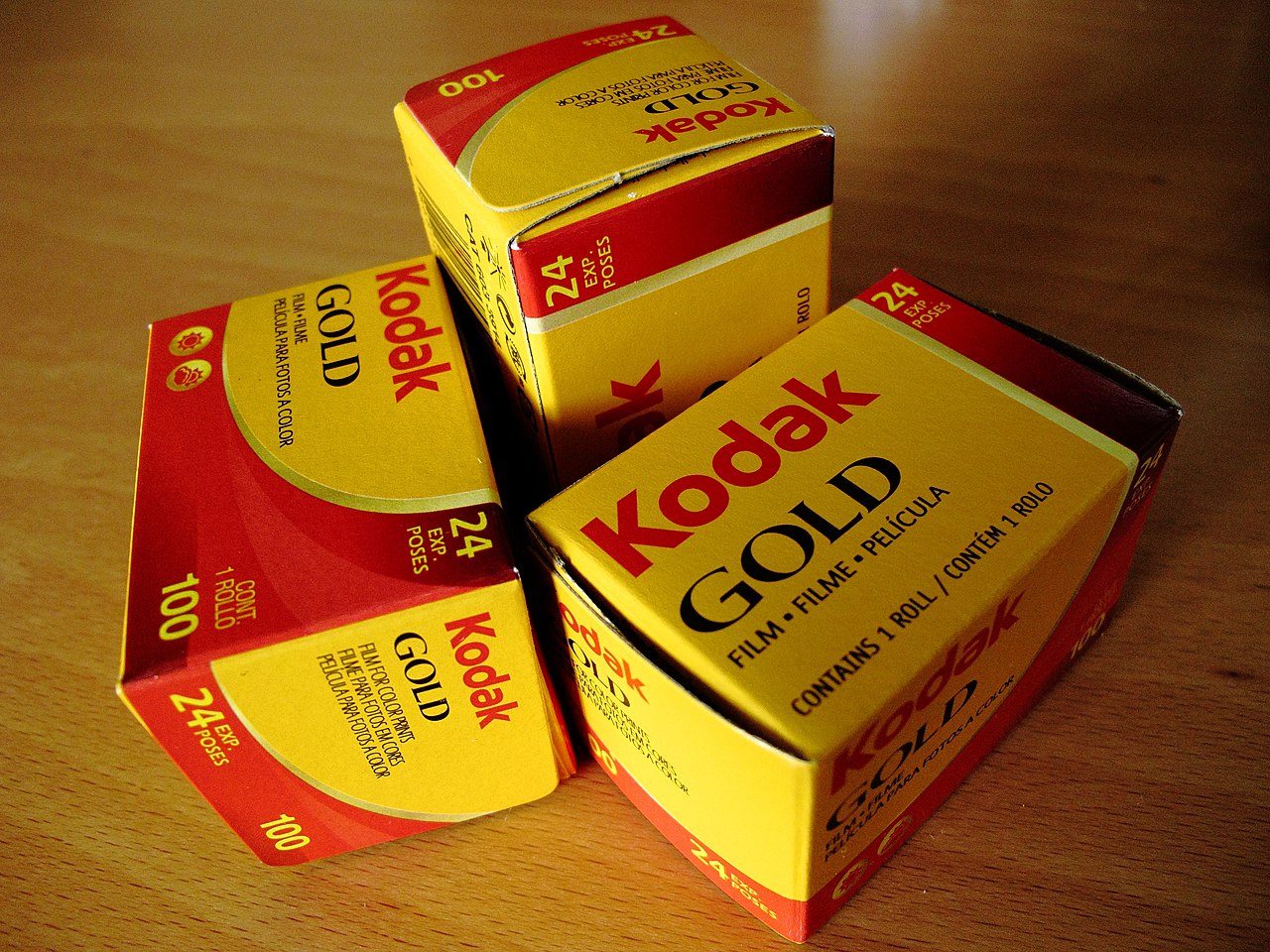 MIKI Yoshihito, CC BY 2.0, Wikimedia Commons
MIKI Yoshihito, CC BY 2.0, Wikimedia Commons
Decca Records Turned Down The Beatles
On January 1, 1962, Decca Records listened to an audition by an English rock band called The Beatles. However, the label ultimately turned down the fledgling group—no doubt a decision that they'd eventually regret.
 Capitol Records, Wikimedia Commons
Capitol Records, Wikimedia Commons
Decca Records Turned Down The Beatles
Decca Records' executives failed to see the Beatles' potential, believing that "the Beatles have no future in show business" and "guitar groups are on the way out." Oh, how wrong they were.
Decca Records Turned Down The Beatles
Instead of signing the Beatles, Decca Records turned its focus on Brian Poole and the Tremeloes, choosing them instead. Considering that the Beatles went on to be one of the greatest—if not the greatest—rock band of all time, the label missed out in the worst way possible.
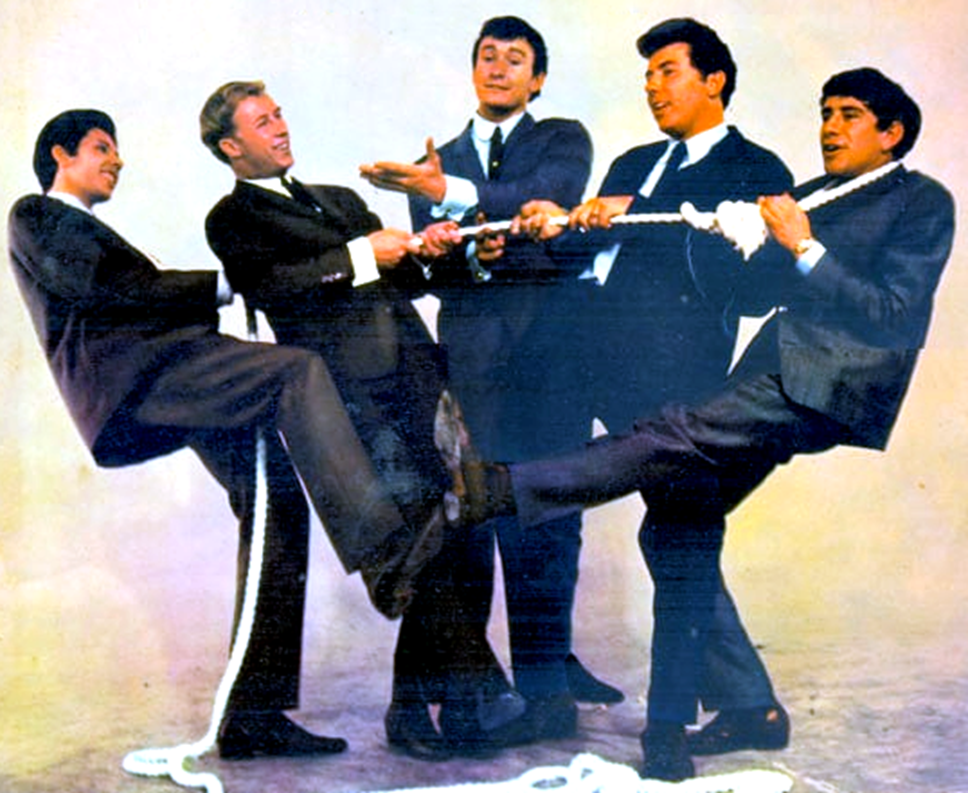 Unknown Author, Wikimedia Commons
Unknown Author, Wikimedia Commons
Yahoo Said "No" Too Many Times
There are many reasons why Yahoo ultimately failed. For one, they neglected to provide a seamless user experience, frequently changing the user interface. However, their worst blunder—or rather, series of blunders—was failing to recognize pitch-perfect opportunities when they came their way.
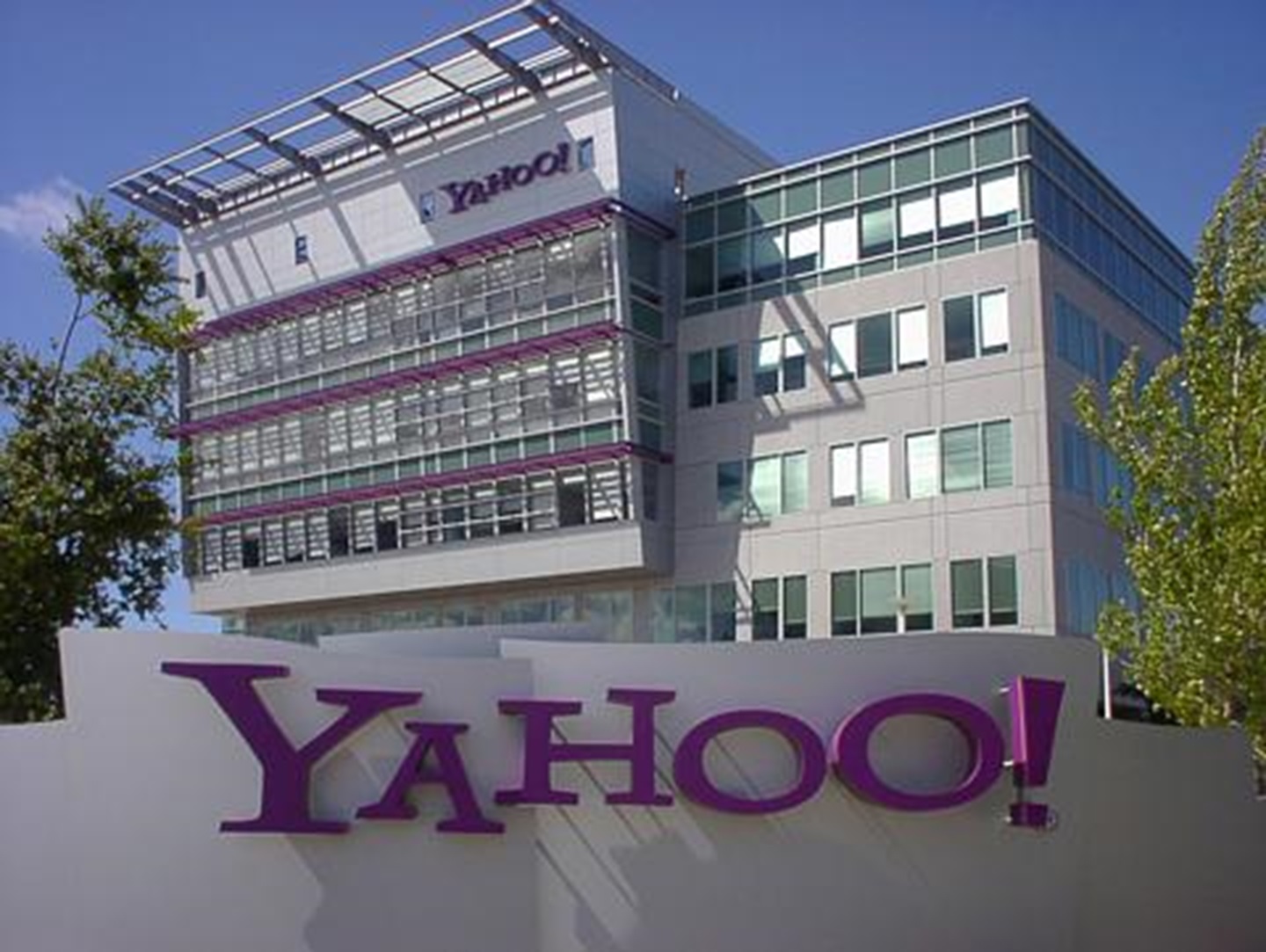 gaku., CC BY 2.0, Wikimedia Commons
gaku., CC BY 2.0, Wikimedia Commons
Yahoo Said "No" Too Many Times
Yahoo's first big mistake was failing to buy Google. Founders Larry Page and Sergey Brin hoped to sell the company to Yahoo for just $1 million, but Yahoo turned Google down.
This, however, was only the beginning.
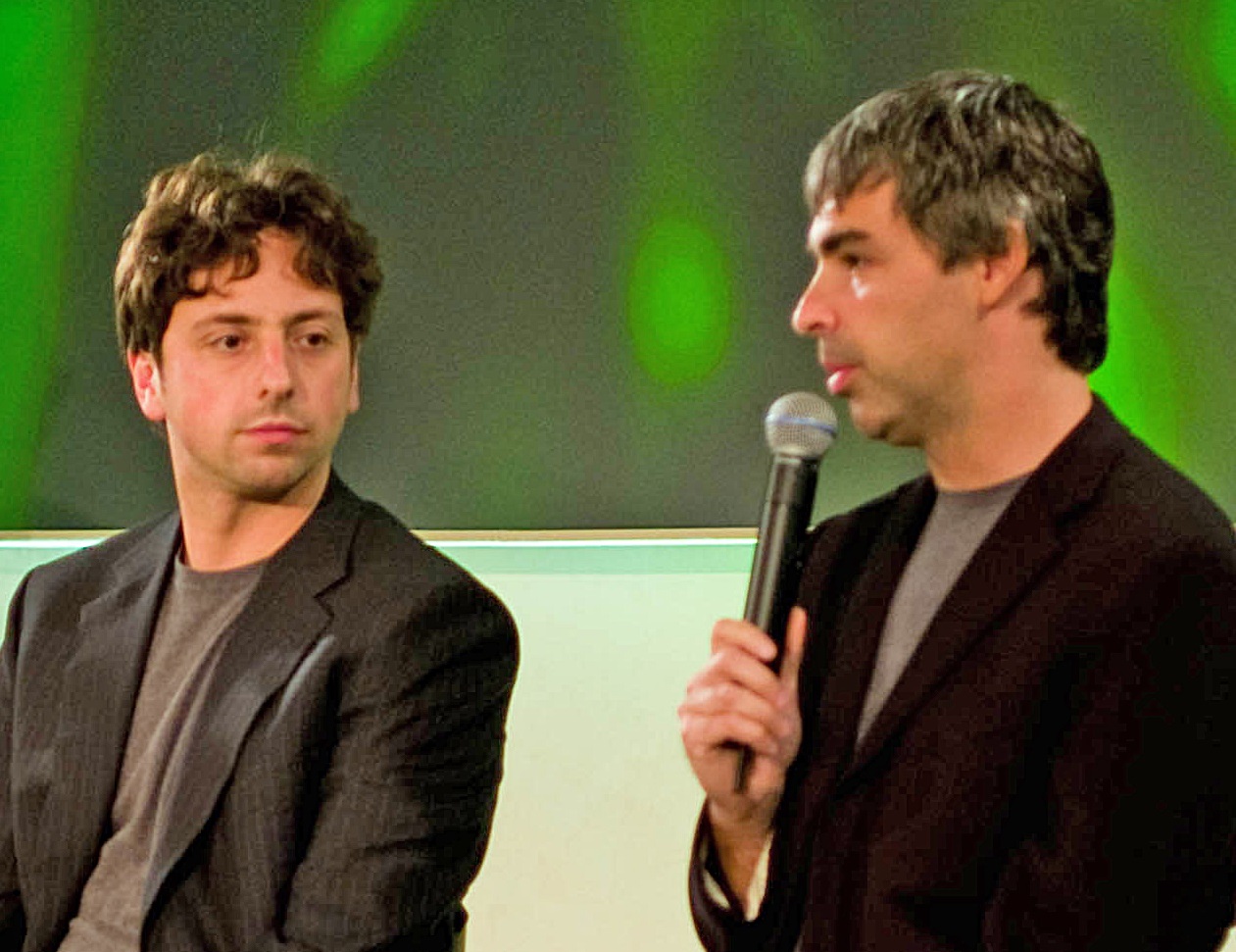 Joi Ito from Inbamura, Japan, CC BY 2.0, Wikimedia Commons
Joi Ito from Inbamura, Japan, CC BY 2.0, Wikimedia Commons
Yahoo Said "No" Too Many Times
In the summer of 2006, Yahoo wanted to get its claws into social networking. They had their sights set on Facebook. But though they tried to purchase the company for $1.1 billion, they ultimately failed.
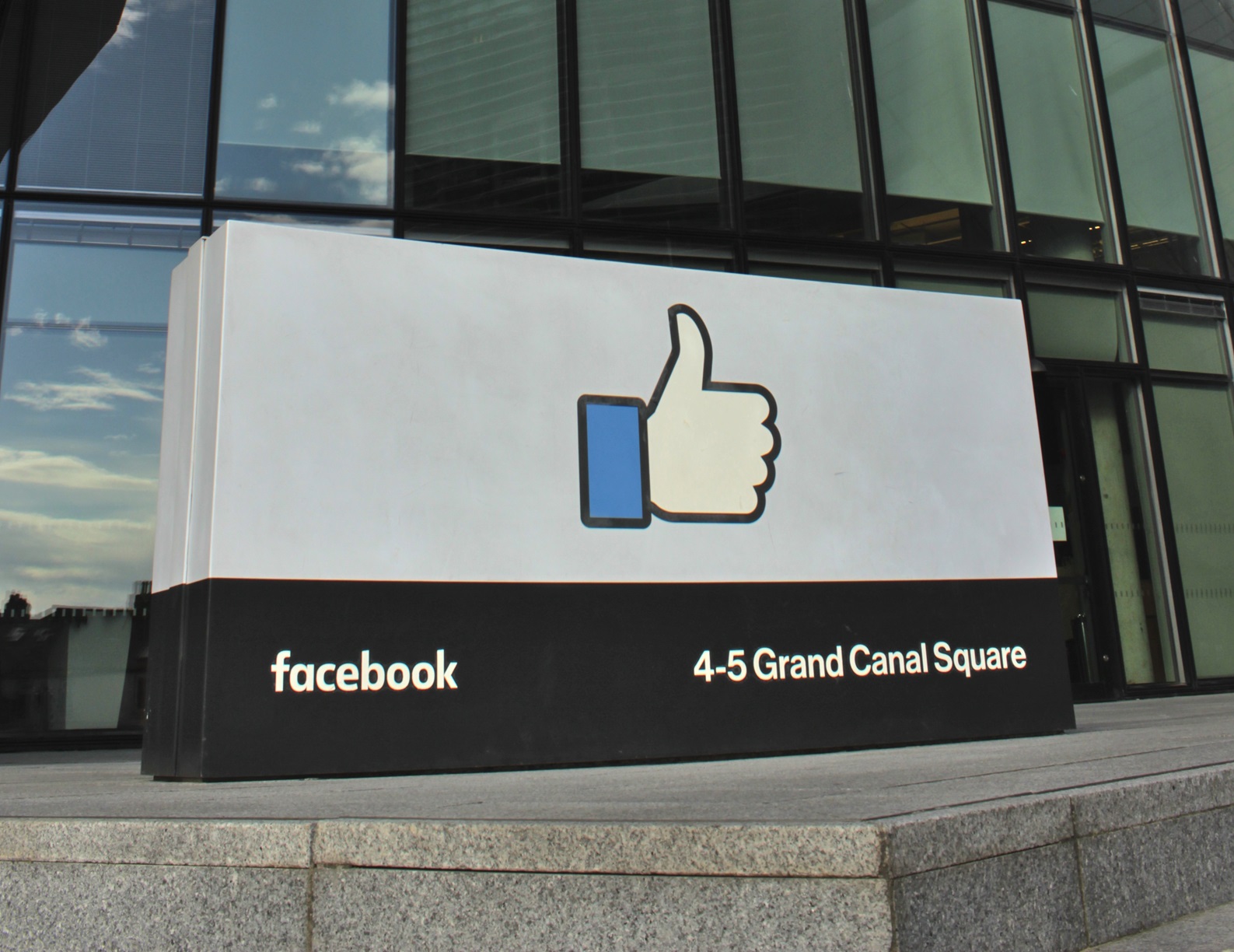 Niamfrifruli, CC BY-SA 4.0, Wikimedia Commons
Niamfrifruli, CC BY-SA 4.0, Wikimedia Commons
Yahoo Said "No" Too Many Times
Just two years later, in 2008, Yahoo missed yet another golden opportunity—this time, with Microsoft. Microsoft wanted to acquire Yahoo for $44.6 billion. Yahoo's CEO Jerry Yang believed that the offer wasn't high enough, and the company turned down the offer.
Fast forward to 2017, and Yahoo settled on just $4.48 billion with Verizon.
 JD Lasica from Pleasanton, CA, US, CC BY 2.0, Wikimedia Commons
JD Lasica from Pleasanton, CA, US, CC BY 2.0, Wikimedia Commons
Yahoo Said "No" Too Many Times
Yahoo also made some unwise acquisitions themselves. These failed ventures included Broadcast.com, Flickr, Right Media, Geocities, Tumblr, and Overture Services, Inc.
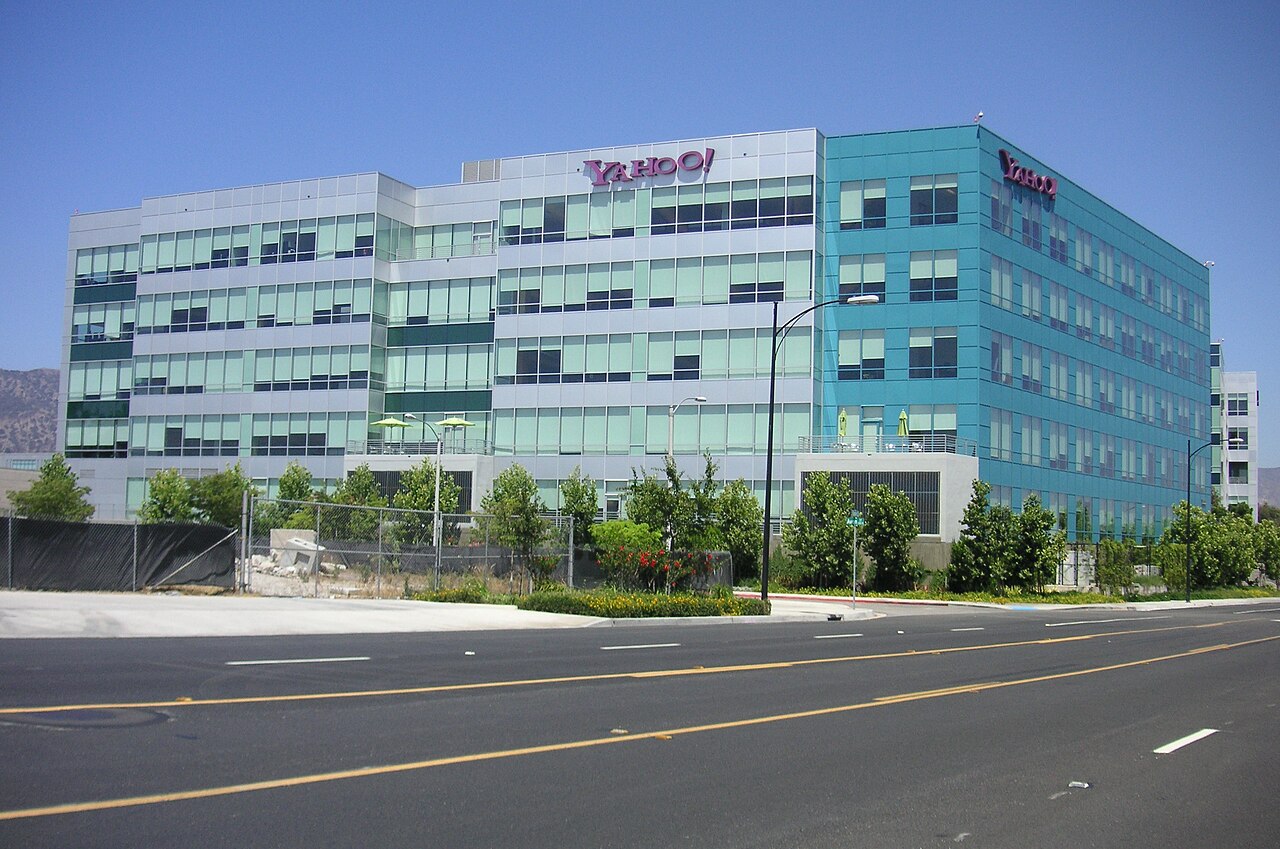 Beatrice Murch, CC BY-SA 2.0, Wikimedia Commons
Beatrice Murch, CC BY-SA 2.0, Wikimedia Commons
Yahoo Said "No" Too Many Times
Purchasing Tumblr and Flickr for social networking purposes ended up being a major disappointment for Yahoo. Tack on some major data breaches, and it's no wonder the company crashed and burned.
 Mitchell Aidelbaum, CC BY 2.0, Wikimedia Commons
Mitchell Aidelbaum, CC BY 2.0, Wikimedia Commons
Excite Could Have Purchased Google
Personally, I don't remember the search engine Excite—and there's a good reason why. In 1999, Google founders Larry Page and Sergey Brin approached Excite, hoping to sell the company for $1 million.
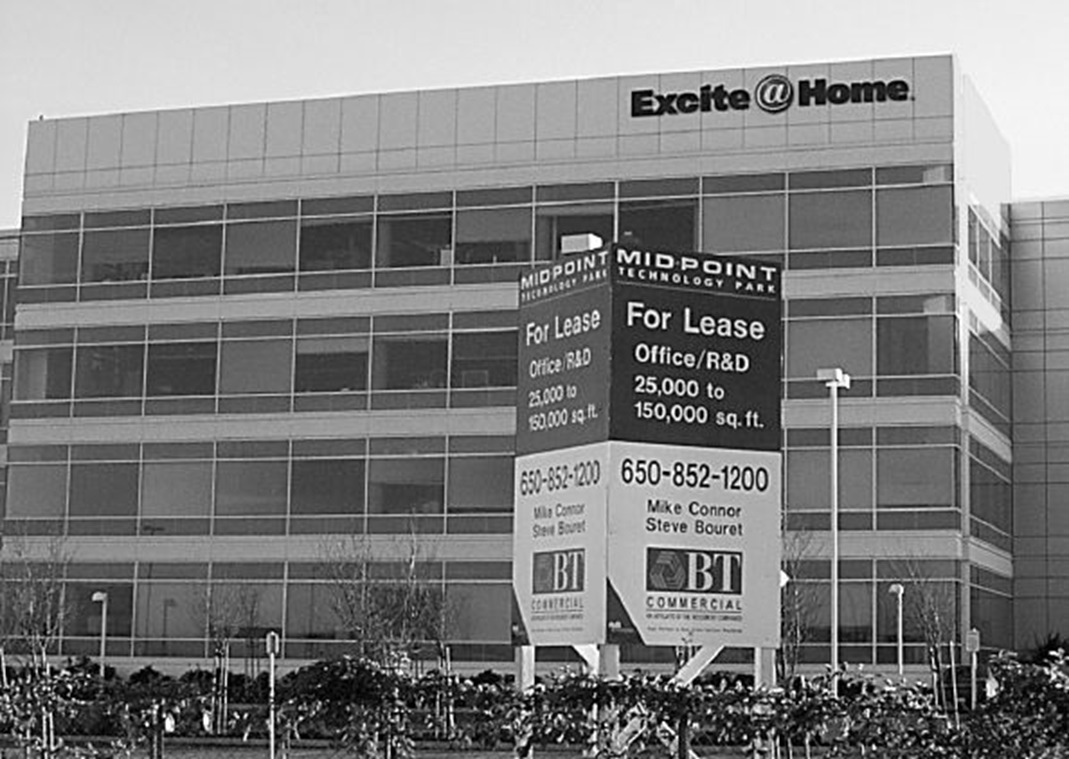 Mark Coggins, CC BY 2.0, Wikimedia Commons
Mark Coggins, CC BY 2.0, Wikimedia Commons
Excite Could Have Purchased Google
However, even after negotiations that dropped the price to $750,000, the CEO of Excite, George Bell, said no. Excite had sealed its fate most tragically.
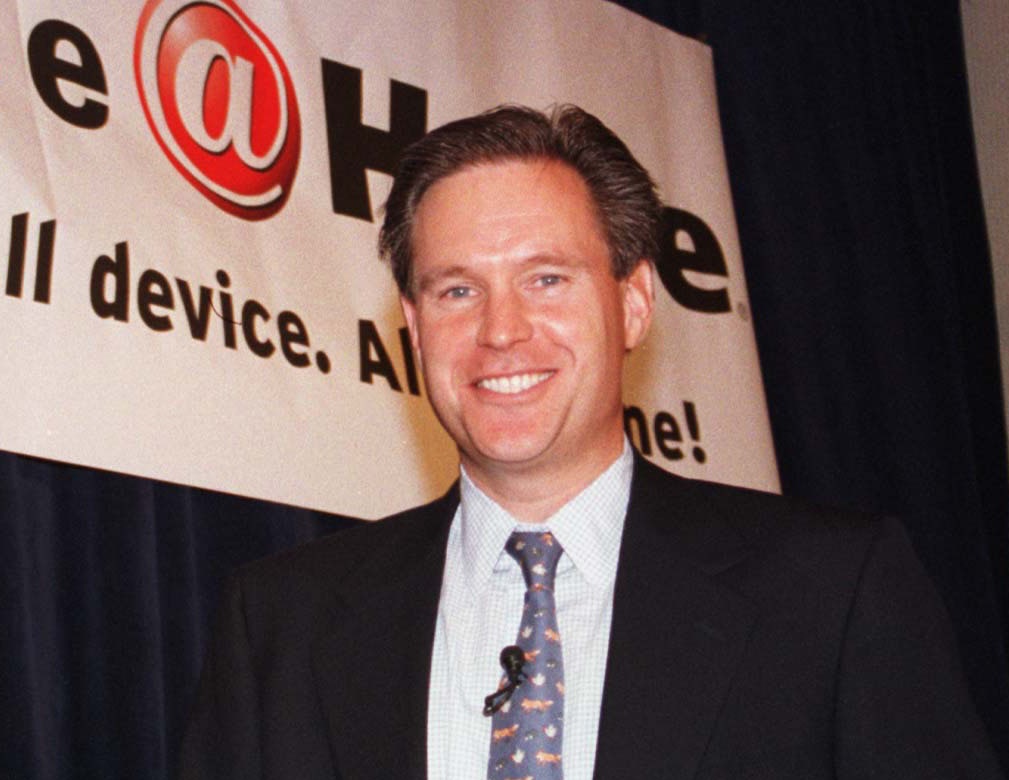 Jeff Christensen/RETIRED , Getty Images
Jeff Christensen/RETIRED , Getty Images
Excite Could Have Purchased Google
It didn't take long for Excite to meet its sad end. In 2004, Ask Jeeves acquired the company, transforming it into Ask.com. Meanwhile, fast forward to today, and Google's market cap has surpassed $2 trillion.
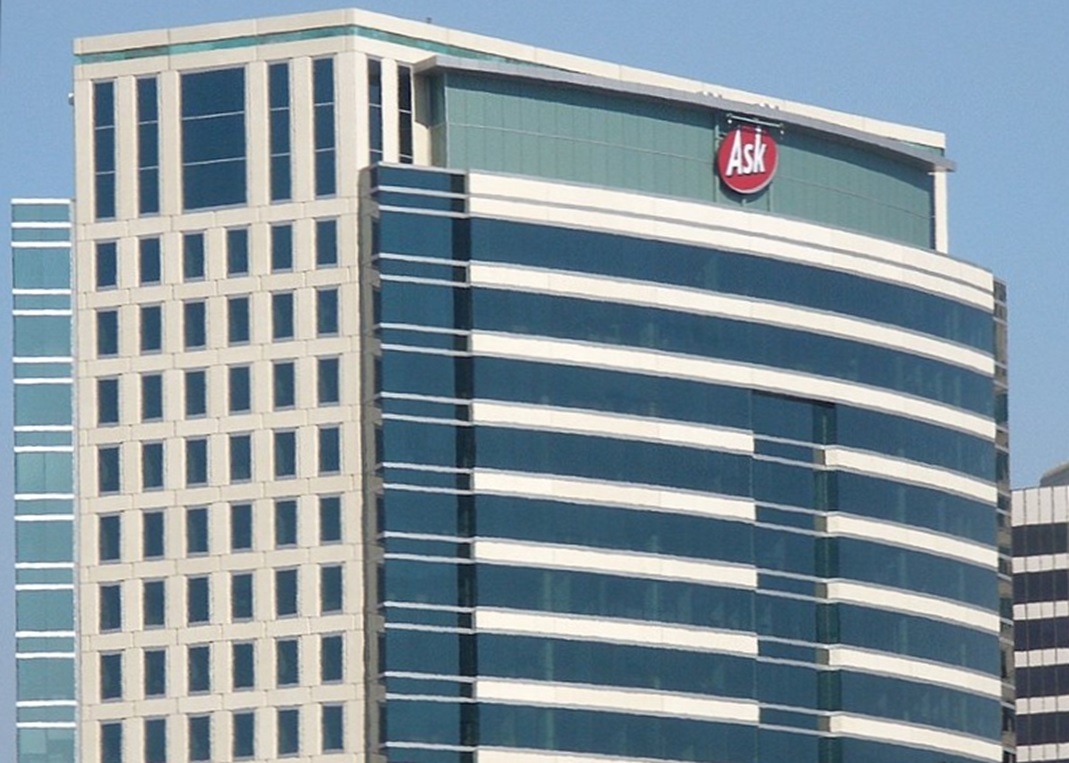 Coolcaesar, CC BY-SA 3.0, Wikimedia Commons
Coolcaesar, CC BY-SA 3.0, Wikimedia Commons
The Speech That Destroyed Gerald Ratner
The downfall of Gerald Ratner's billion-dollar jewelry chain was shocking. Why? Well, because it took only one speech to destroy it.
 Gerald.ratner, CC BY-SA 4.0, Wikimedia Commons
Gerald.ratner, CC BY-SA 4.0, Wikimedia Commons
The Speech That Destroyed Gerald Ratner
In 1984, Gerald Ratner inherited Ratners. At the time, it wasn't doing so hot, with just 120 storefronts and annual losses. Ratner worked hard to expand the company, using effective marketing strategies like posting eye-catching posters in store windows that promised, "SALE SALE SALE: HALF PRICE!"
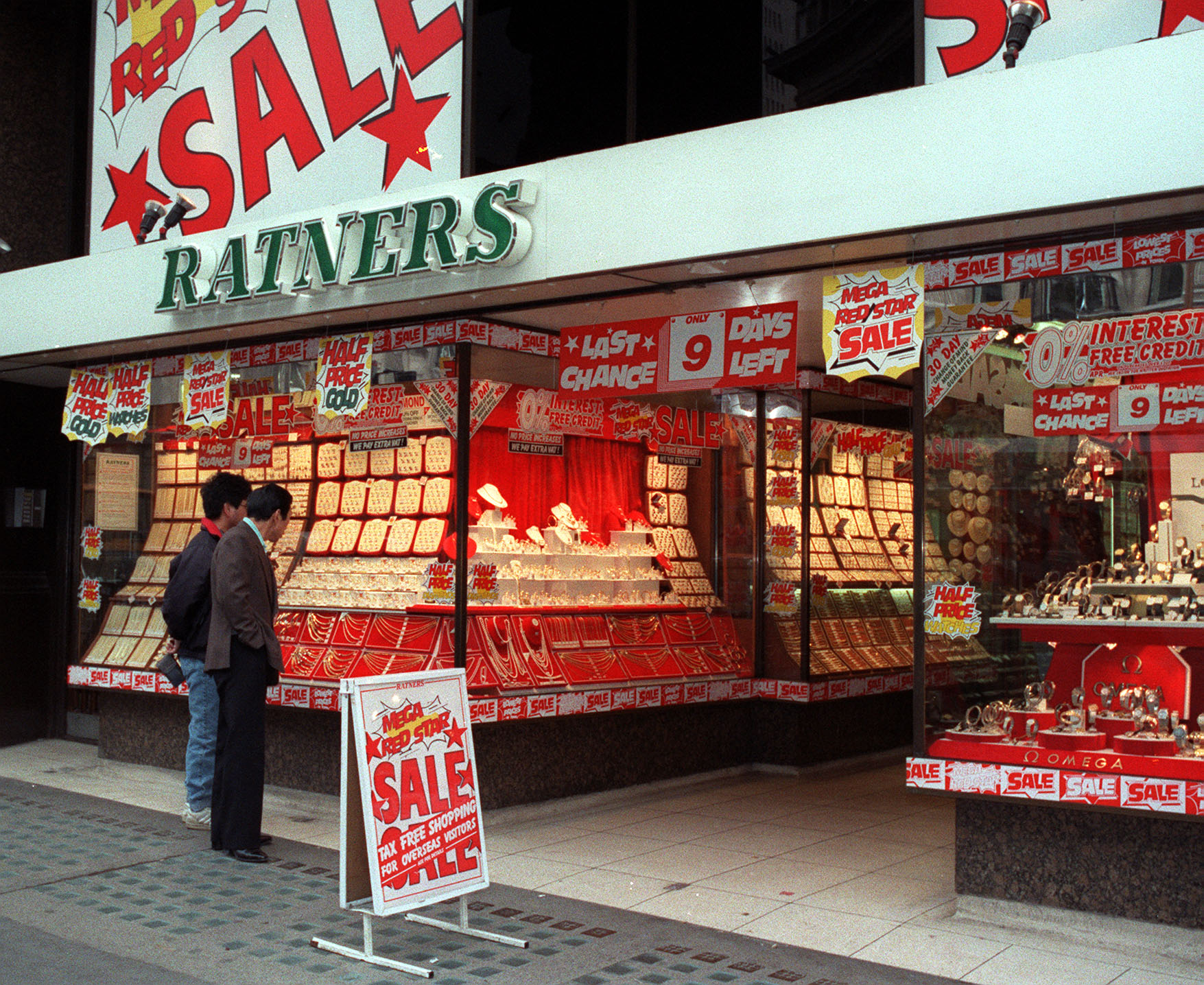 Jim James - PA Images , Getty Images
Jim James - PA Images , Getty Images
The Speech That Destroyed Gerald Ratner
By 1990, there were over 2,000 locations, with Ratners dominating half of the UK's jewelry market. Long gone were the days of being in the negative, because there were millions to be made every year. Then, in a blink of an eye, it all went wrong.
The Speech That Destroyed Gerald Ratner
In 1991, Gerald Ratner attended an event at the Royal Albert Hall. He'd been invited to make a speech at the Institute of Directors. Though Ratner was a respected businessman, the words that spewed from his mouth doomed him.
 Gerald.ratner, CC BY-SA 4.0, Wikimedia Commons
Gerald.ratner, CC BY-SA 4.0, Wikimedia Commons
The Speech That Destroyed Gerald Ratner
In a strange twist, Ratner began speaking about his company's products in a terrible way. He criticized them and openly stated that they were of poor quality.
 Gerald.ratner, CC BY-SA 4.0, Wikimedia Commons
Gerald.ratner, CC BY-SA 4.0, Wikimedia Commons
The Speech That Destroyed Gerald Ratner
Another gem from Ratner's speech was when he specifically called out the company's wine glasses, calling them “cheaper than a prawn sandwich but probably wouldn’t last as long.”
The Speech That Destroyed Gerald Ratner
In one fell swoop, Gerald Ratner burned his reputation to the ground—and Ratners Groups suffered financially. The company's share prices dipped, causing a loss of £500 million, not to mention the ire of so many loyal customers.
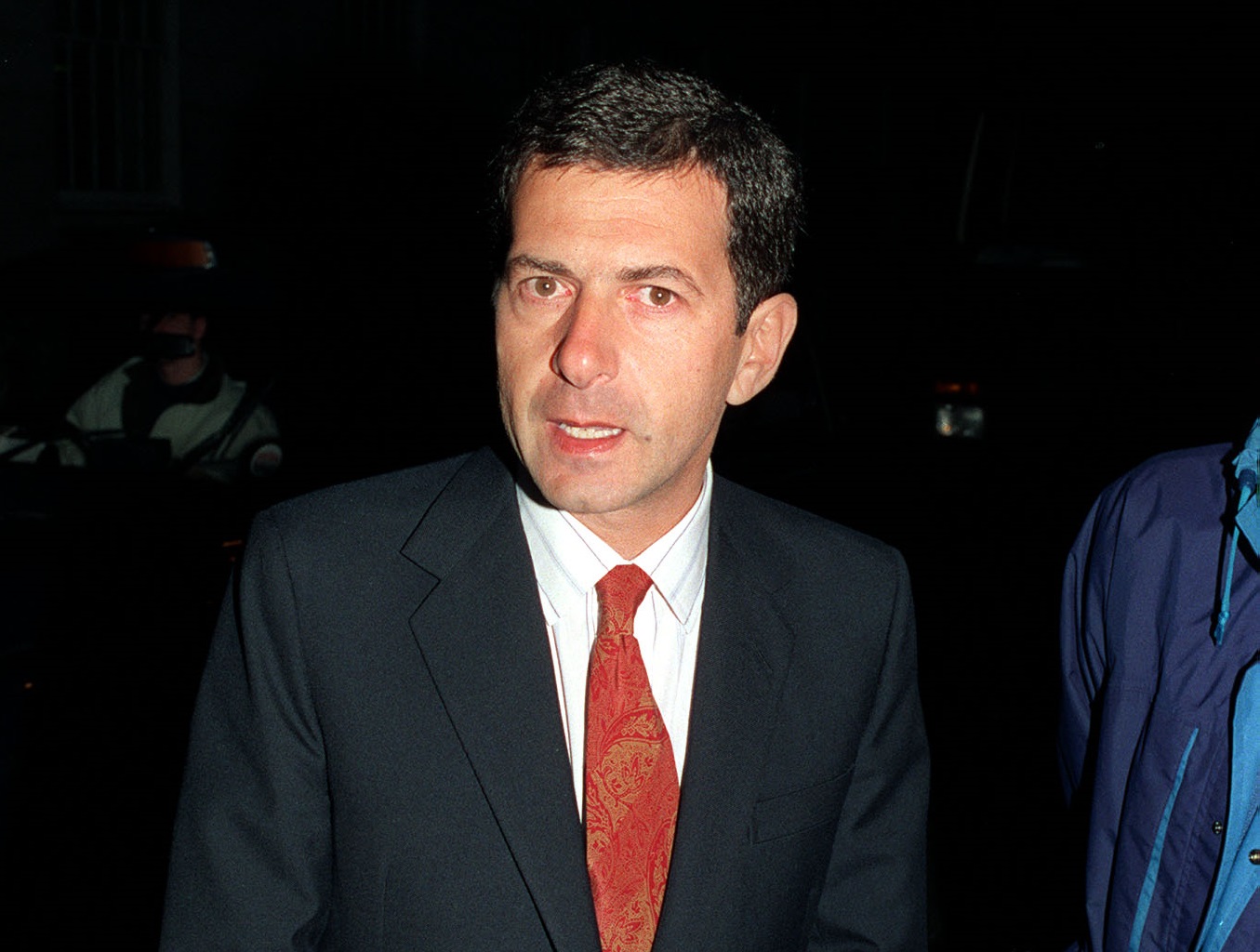 Fiona Hanson - PA Images, Getty Images
Fiona Hanson - PA Images, Getty Images
Sega Saturn Launched Too Early
In 1995 Sega slipped up in a major way. They decided to launch Sega Saturn four months early in an attempt to rival the PlayStation release. Unfortunately, nobody was prepared.
Sega Saturn Launched Too Early
The premature launch of Sega Saturn blindsided the developers and the retailers. It was a mess. There simply weren't enough games, and the retailers struggled to provide adequate support.
 PiaCarrot, CC BY-SA 3.0, Wikimedia Commons
PiaCarrot, CC BY-SA 3.0, Wikimedia Commons
Sega Saturn Launched Too Early
Instead of coming out on top like they'd hoped, Sega sabotaged Sega Saturn's potential. The early release did nothing to quell the success of the PlayStation, which eventually became the leading console on the market.
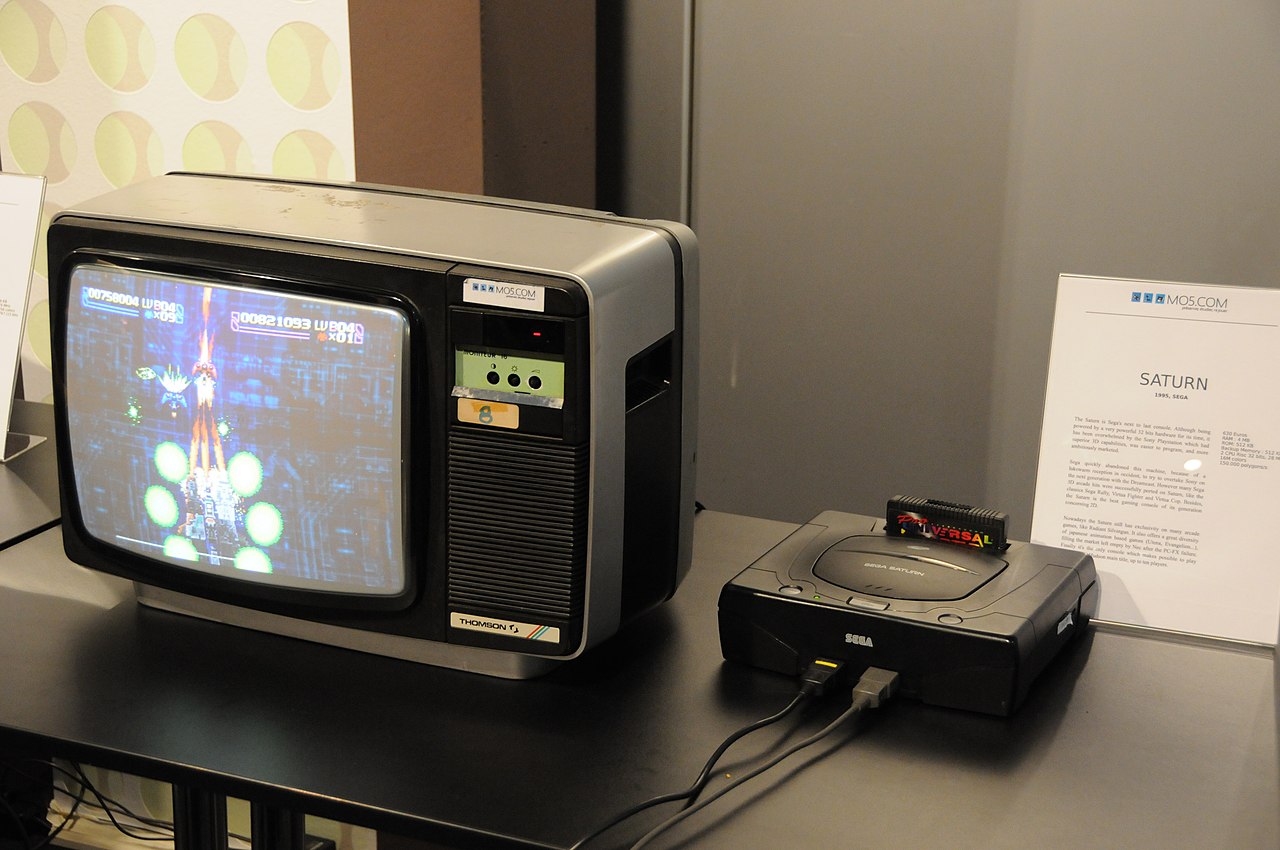 Kuba Bożanowski, CC BY 2.0, Wikimedia Commons
Kuba Bożanowski, CC BY 2.0, Wikimedia Commons
Hewlett-Packard's Detrimental Acquisition
Hewlett-Packard (HP) made the awful decision to purchase Autonomy in 2011. The cost? A jaw-dropping $11.7 billion. It took less than a year for HP to realize that they'd made a horrible mistake.
Hewlett-Packard's Detrimental Acquisition
HP had to admit that Autonomy's value dropped drastically, writing off $8.8 billion. It was a severe loss. HP explained that there had been "serious accounting improprieties" and "outright misrepresentations."
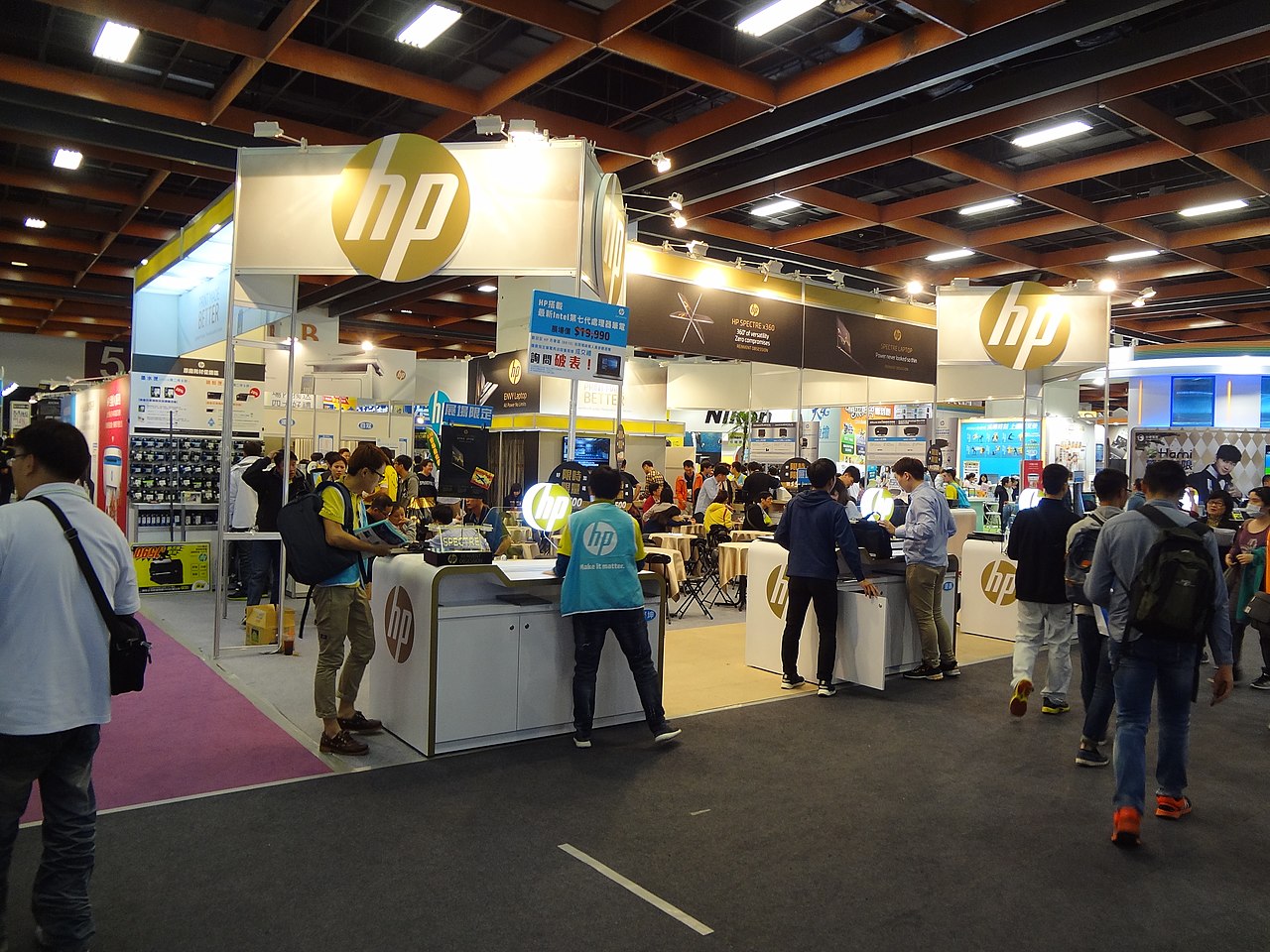 Solomon203, CC BY-SA 4.0, Wikimedia Commons
Solomon203, CC BY-SA 4.0, Wikimedia Commons
Hewlett-Packard's Detrimental Acquisition
However, Mike Lynch, the co-founder of Autonomy, claimed that HP's way of running the company had led to the severe issues they had to face.
Xerox Didn't Roll With The Times
Xerox was a huge company, but its success wavered and then plummeted after it failed to roll with the times. But even more disappointing? They could have grasped fantastic opportunities so much sooner and thrived.
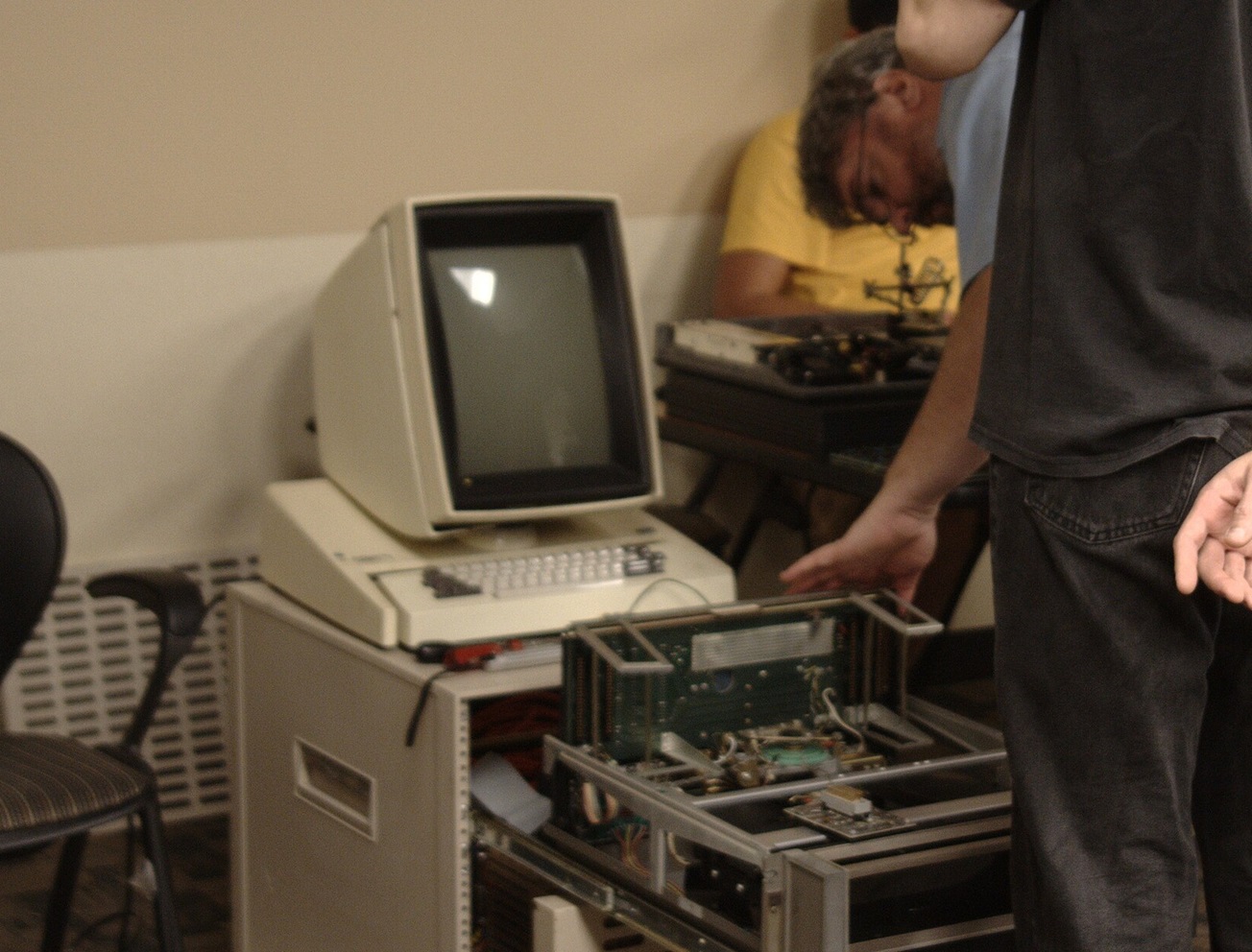 Patrick Finnegan, CC BY 2.0, Wikimedia Commons
Patrick Finnegan, CC BY 2.0, Wikimedia Commons
Xerox Didn't Roll With The Times
Rolling it back to the 1970s, Xerox PARC was actually responsible for the first personal computer that worked with a mouse. Yup, they invented the PC, graphical user interface, and ethernet. However, they did not run with this as they should have.
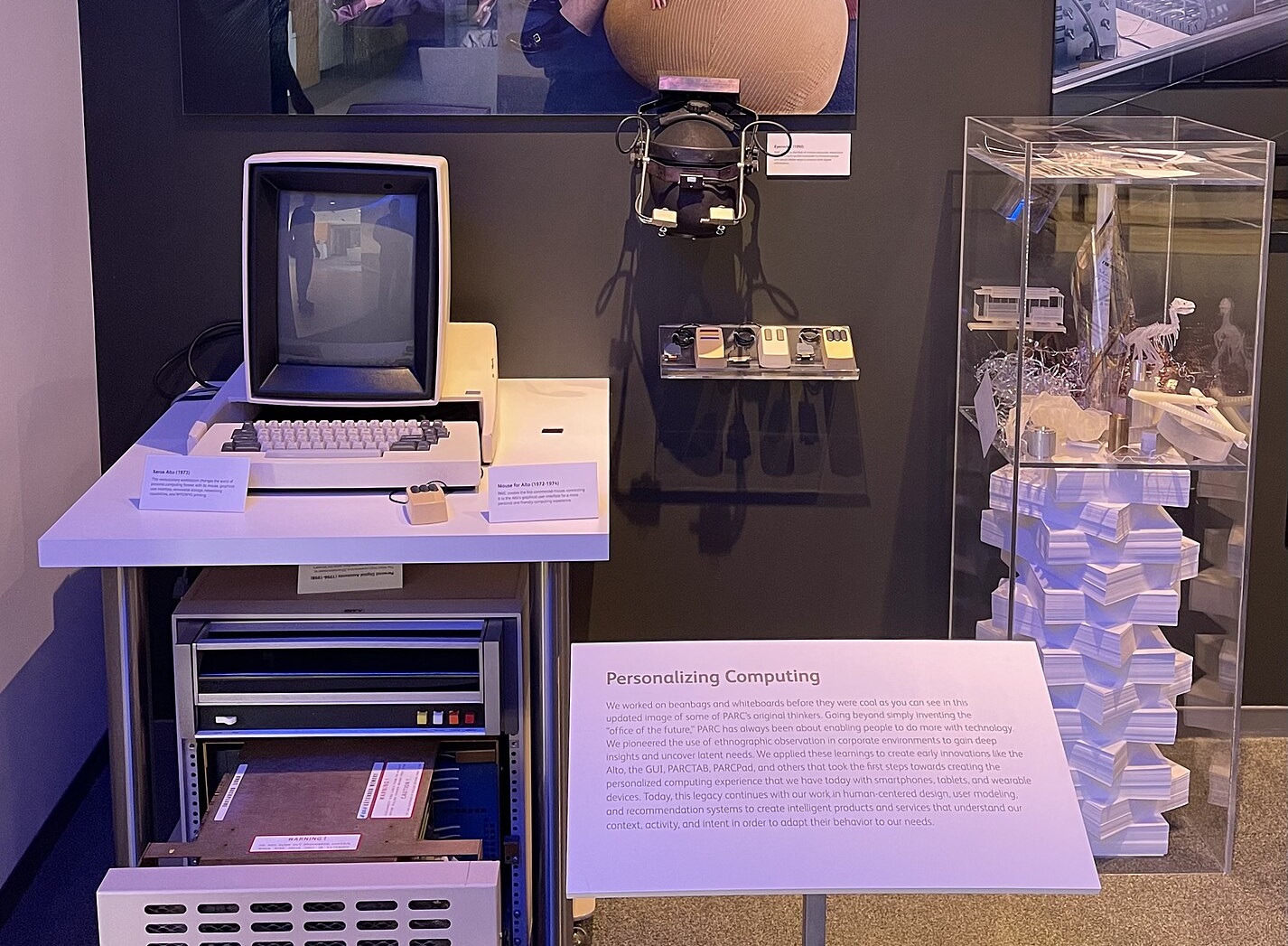 Steve Jurvetson, CC BY 2.0, Wikimedia Commons
Steve Jurvetson, CC BY 2.0, Wikimedia Commons
Xerox Didn't Roll With The Times
Competitors like Microsoft and Apple adapted to technological change in a way that Xerox didn't. Xerox could have been just as big, but ultimately failed. This, along with patent expirations and the unwise acquisition of WUI, sealed the company's tragic fate.

